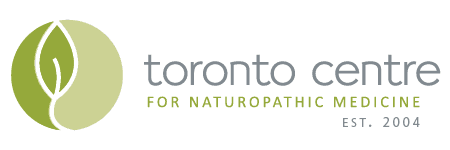Candida albicans Overgrowth
Candida albicans overgrowth, also described as chronic Candidiasis, is well-treated using naturopathic medicine.
Candida albicans overgrowth describes a situation in which the naturally occurring, usually benign yeast, Candida albicans, reproduces in the body excessively.
It occurs when the normal balance between “good” and “bad” microorganisms (specifically Candida albicans) is disrupted, most commonly by use of antibiotic or steroid medications); compromised immune system activity not controlling yeast population; or a diet that supports growth of yeasts.
Candida albicans overgrowth can affect quality of life, and in severely immune compromised persons (e.g., those having human immunodeficiency virus [HIV]) spread to the lungs and liver.
Seek professional healthcare if you develop painful white lesions in the mouth, or you have symptoms causing you to suspect you have Candida albicans overgrowth.
Symptoms of Candida albicans Overgrowth
Possible symptoms of Candida albicans overgrowth include:
- Painful, white mouth lesions
- Abdominal pain and bloating
- Diarrhea or constipation
- Heartburn
- Vaginal itching or burning sensation
- Headache
- Muscle aching
- Poor concentration and memory
- Fatigue
- Recurrent ear infections
Treatment of Candida albicans Overgrowth at Toronto Centre for Naturopathic Medicine
At Toronto Centre for Naturopathic Medicine, the goals of Candida albicans overgrowth treatment are to remove dietary factors that support Candida albicans growth, reduce Candida albicans population in the body, increase populations of “good” microorganisms in the body to compete with Candida albicans and prevent symptoms occurring from Candida albicans “die-off” (e.g., headaches, nausea, fatigue).
Conventional treatment for Candida albicans overgrowth depends on your age and the cause of the infection, and may include antifungal medications. These treatments may have short- or long-term side effects.
For this reason, you may choose to try natural treatment to possibly avoid use of conventional medications, or together with conventional medications in order to decrease dosages of conventional medications required to manage your Candida albicans overgrowth symptoms.
Naturopathic treatment of any chronic health concern must be recognized as a process that involves:
- Identifying specific treatment goals
- Development by your naturopathic doctor, of a thorough understanding of all factors affecting your health, including physical, psychological, emotional and lifestyle factors
- Development of a comprehensive treatment plan
- Implementation and maintenance of that plan through periodic monitoring and adjustment
At Toronto Centre for Naturopathic Medicine, a typical approach to treating Candida albicans overgrowth may be to:
- Identify and address underlying factors in your lifestyle (e.g., poor diet, poor stress management, breastfeeding technique) or general health (e.g., HIV infection, diabetes mellitus, chronic use of corticosteroid medications) that may be contributing to Candida albicans overgrowth
- Reduction of Candida albicans populations using anti-fungal botanical (herbal) medicines
- Increase “good” bacteria populations using nutritional supplements
- Prevention of recurrence by optimizing immune system function using botanical (herbal) medicines and nutritional counseling
Where appropriate, a number of therapeutic options are available, to be used alone, or more often in a complementary fashion, including:
- Nutritional counseling
- Nutritional supplements
- Metabolic detoxification protocols
- Botanical (herbal) medicines
- Acupuncture
- Homeopathy
- Bowen Therapy
- Suikodo™
- Hydrotherapy
- Exercise prescription
- Relaxation (meditation) training
- Lifestyle medicine and counseling
Treatments provided by naturopathic doctors are covered by most extended healthcare plans.
References
Murray MT, Pizzorno JE. Chronic candidiasis. In: Murray MT, Pizzorno JE, editors. Textbook of natural medicine. 2nd ed. Toronto. Churchill Livingstone; 1999.
Oral Thrush [Internet]. Mayo Foundation for Medical Education and Research; [cited 2010 Jan 9]. Available from: http://www.mayoclinic.com/health/oral-thrush/DS00408.


